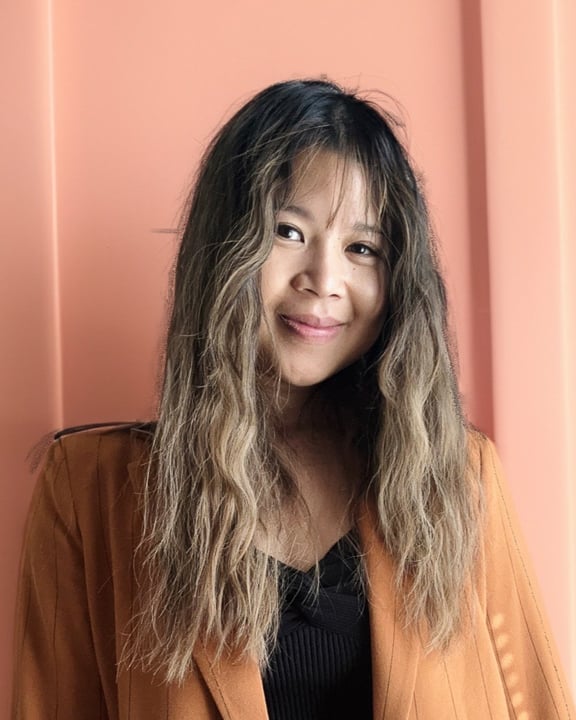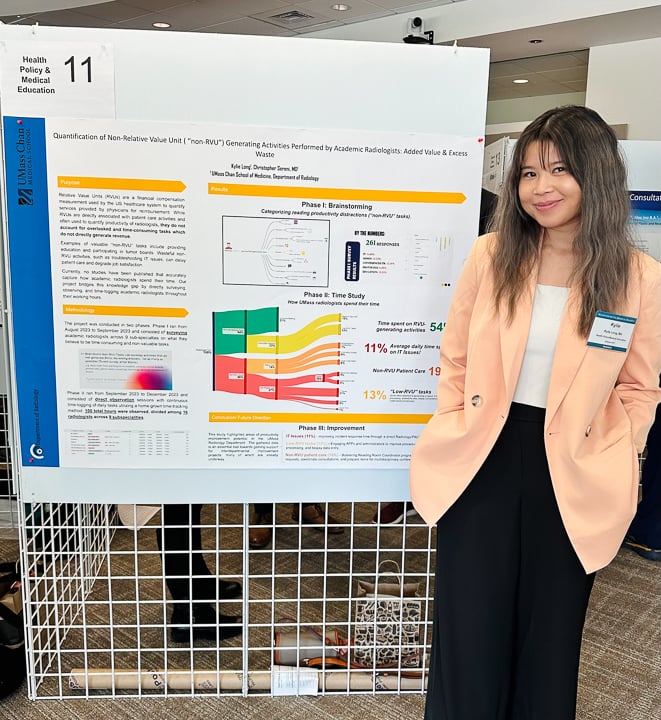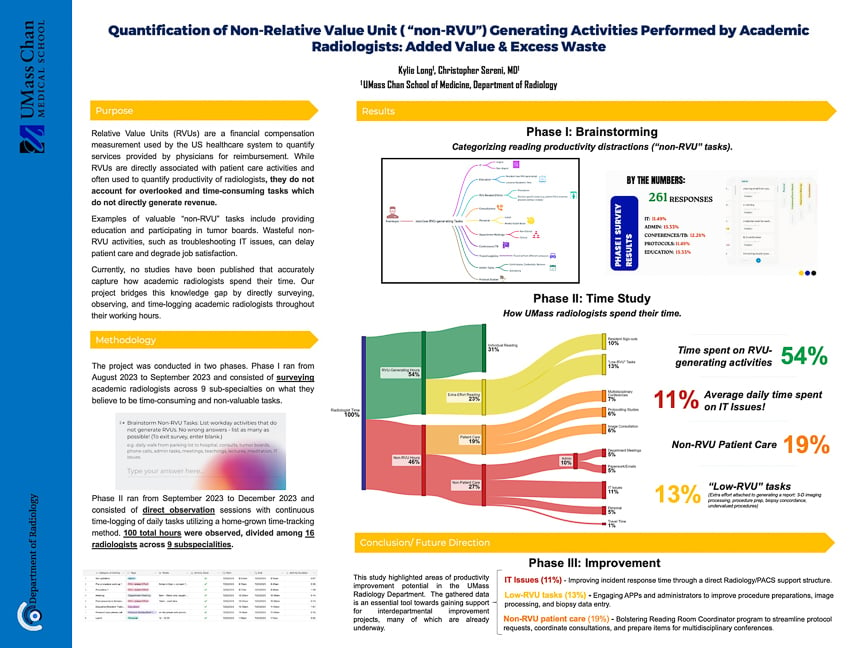Medical Student Kylie Long Presents Non RVU Research

Medical Student Kylie Long's abstract, Quantification of Non-Relative Value Unit (“non-RVU”) Generating Activities Performed by Academic Radiologists: Added Value and Excess Waste, has been accepted as an ePoster at the American College of Radiology (ACR) 2024 Annual Meeting scheduled for April 13-17, 2024. The paper was co-authored with Christopher Sereni, MD, Assistant Professor, Musculoskeletal Radiology.
The paper was also selected for the Health Policy/Medical Education category at the Massachusetts Medical Society’s (MMS) Fifteenth Research Poster Symposium for Residents, Fellows, and Medical Students being held in conjunction with the 2024 MMS Future Health Best Conference. The Symposium took place in Waltham on March 22, 2024 at MMS Headquarters.
Congratulations Kylie!
Kylie Long say's she is "a freshly minted M3 at UMass Chan. I come from a background of working for healthcare startups and venture capital prior to medical school. Always had an interest in radiology as it combined my love for technology and medicine and was really excited to explore the field further. The opportunity to work on this research came about when Max [Rosen, MD, MPH, department chair], knowing of my background and interest, introduced me to Chris (Sereni, MD) and thought it was a fitting project for me given my interest and past work experiences. Our project looked to understand and quantify non-RVU generating activities that academic radiologists do on a daily basis and not currently being captured accurately. In other words, to date, no one really knows what a radiologist does with their time. More importantly, the way that they are currently compensated (via relative value units (RVUs)) doesn’t always quite reflect the amount of work they do. For example, things like troubleshooting IT issues, attending tumor boards and conferences, educating residents, etc. generate low or no RVUs and yet are either incredibly valuable and/or a complete time sink . By not elucidating these activities and ultimately finding solutions to reduce waste and increase efficiency, this leads to the increase rate of burnout we are seeing in the field. In essence, our project aims to capture some of those valuable and not-so-valuable activities and move towards coming up with solutions that not only can help increase efficiency, reduce burnout rates, but also downstream increase hospital bottom line."






